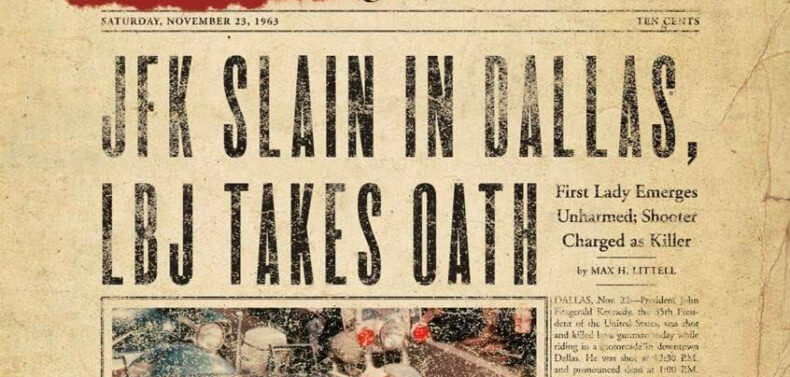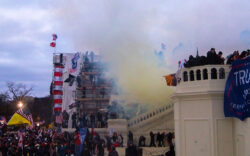Sixty years after he was assassinated in Dallas on Nov. 22, 1963, the murder of President John F. Kennedy has inspired enough books to fill a library.
Historians have documented the Kennedy presidency and the bloody end of a time called Camelot. Conspiracy believers have added their conjectures about the assassination in hundreds of books and in films like director Oliver Stone’s JFK in 1991 and 1973’s Executive Action. Here are a few books worth reading as Americans remember the tragedy 60 years ago.
The Death of a President by William Manchester was published in 1967. It is a dramatic yet magisterial recounting of the events before, during and after the shots were fired in Dallas. This book takes readers right inside the presidential limousine as gunfire rang out, and it includes testimony from eyewitnesses who saw a man resembling accused assassin Lee Harvey Oswald with a rifle on the scene. Written in cooperation with JFK’s widow, Jackie, and his brother Robert—himself assassinated in 1968—The Death of a President is a readable account of days in November 1963 that changed history.
Dallas 1963 by Bill Minutaglio and Steven L. Davis was published in 2013 during the 50th anniversary of JFK’s death. The authors dissected Dallas at the time of the president’s impending visit and found a city rife with reactionaries, including right-wing billionaire ketchup king H. L. Hunt and newspaper publisher Ted Dealey, whose family name is on the Dealey Plaza killing ground in Dallas. This book’s look at extremism and divisiveness in a major American city in 1963 is a cautionary tale for our times today.
A Thousand Days: John F. Kennedy in the White House by historian Arthur Schlesinger Jr. weighs in at over a thousand pages, but it is an essential history of those heady days that ended in tragedy. The author wrote, “Bitterness, anguish, disbelief, emptiness mingled inextricably in one’s mind” in the aftermath of the assassination. He recalled his horror upon learning that Texas school children cheered at the news, and shared his memories of the muffled drums and somber stateliness of the president’s funeral in Washington.
Americans were tuned in by the millions to television coverage of JFK’s assassination but newspapers of the time contributed the first draft of history, and their coverage also was read by millions of Americans in 1963. Just weeks after Kennedy was killed, both the Associated Press and United Press International published books about what was called “the crime of the century.” Both books were compiled quickly which makes them crackle with an immediacy that is still compelling today. The AP book was called The Torch is Passed—taking its title from a line in JFK’s inaugural address. The UPI book is titled Four Days: A Historical Record of the Death of President Kennedy. Both books still convey the national anguish of November 1963.
President Kennedy’s untimely death left millions with a sense of dashed dreams and unfinished business. Jeff Greenfield’s If Kennedy Lived: The First and Second Terms of President John F. Kennedy bills itself as “an alternate history” of what America might have been like if JFK had not been killed. Conjecture and conspiracy are forever linked with Kennedy lore, but this 2013 book is a readable reminder that history can change for good or ill in an instant.
Stephen King’s horror stories are read by millions, but in 2011 he wrote a real horror story, his novel 11/22/63 about a Maine schoolteacher who goes back in time to thwart the Kennedy assassination. This book looks daunting at more than 800 pages, but it’s a real page-turner that showcases King’s vivid imagination. No time machine is needed for King’s time traveler, who instead journeys to the past via a mysterious portal in the pantry of a small-town diner. King met with historian Doris Kearns Goodwin while writing this novel and, after studying conspiracy scenarios, concluded that Oswald was the sole assassin.
These books and so many more show that the words of 19th century poet John Greenleaf Whittier apply to the 20th century’s death of President Kennedy: “Of all sad words of tongue or pen/ The saddest are these; ‘It might have been.’”
Like what you just read? Support Flagpole by making a donation today. Every dollar you give helps fund our ongoing mission to provide Athens with quality, independent journalism.










